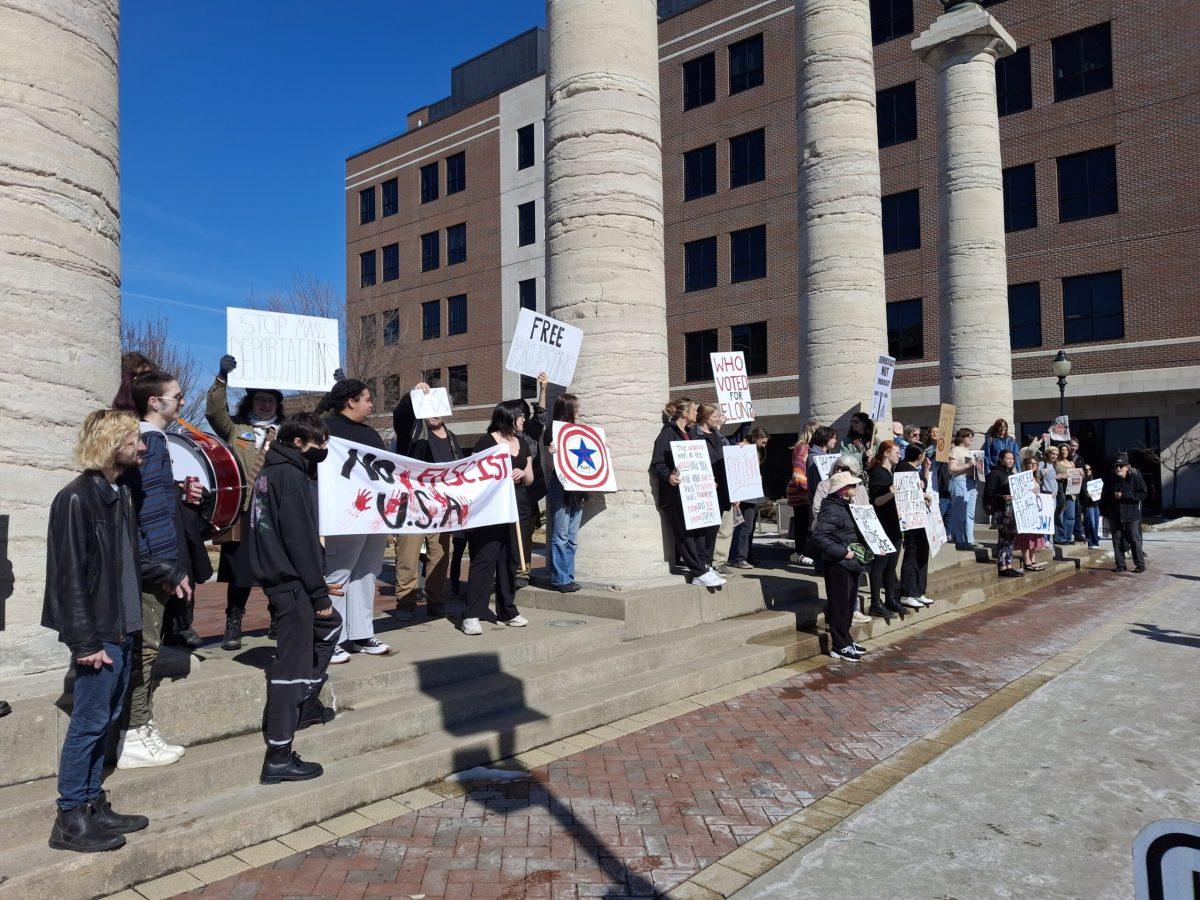In two different rooms sat two different groups of people, ranging anywhere from single college-aged men to couples who have been married for 20 years. All of them showed up with different goals, but all of them had the same question at the core: how to find and maintain a healthy relationship. To answer this question, they all attend the ShowMe Healthy Relationships class on Mondays from 5:30 to 7:30 p.m.
ShowMe Healthy Relationships is year four of a five-year program implemented through a partnership between the Department of Human Development and Family Science and the College of Human Environmental Sciences. Program director Dr. Chelsea Garneau-Rosner said the goal of the program is to offer classes to anyone over the 18 years old looking to improve their romantic relationships across Missouri.
“Our primary emphasis is reaching lower resource and maybe lower income populations who wouldn’t otherwise have access to resources such as ours, such as couples’ therapy and things like that that you have to pay for in the community,” Garneau-Rosner said.
Both people who are single and in relationships, whether casual or long-term, are welcome in the ShowMe Healthy Relationship classes. These feature two separate curricula: one for those already in a relationship, called “Seven Principles for Making Marriage Work,” and one for those who are looking for a relationship, called “Pick a Partner.” Despite its name, those in “Seven Principles for Making Marriage Work” do not have to married; it’s for any couple looking to improve their relationship. Garneau-Rosner said it is strongly encouraged for couples to attend together if possible.
“There’s a lot of emphasis on taking a step back and looking at the state of your friendship with one another and how well you really know each other,” Garneau-Rosner said. “Even for couples who’ve been together for 20 years, coming back in and kind of getting to know each other all over again is important. We take for granted that we know what our partners’ current stressors and worries and what’s going on in their lives… so we kind of help people slow down, turn back toward one another and prioritize their relationship regardless of how long [they’ve] been together.”
“Pick a Partner,” on the other hand, focuses more on the process of getting to know a potential partner and getting into a relationship. Garneau-Rosner said it also addresses how participants can use what might have gone wrong in former relationships to improve the ones they may have in the future.
These classes are taught primarily by graduate students, including Emily Charvat and Brianna Fletchall. Charvat is currently training to teach the couple’s class by co-facilitating these sessions, while Fletchall has been involved in the program since January, first interning and now facilitating a course. Both got involved with the program through an interest in relationships and education and wound up sticking with it because they felt it was an important class that truly made a difference in people’s lives.
“Maintaining relationships between spouses — there are all sorts of benefits for life satisfaction, happiness, wellbeing, positive health behaviors,” Charvat said. “You have a better immune system, your wounds heal better if you have a supportive partner, all that kind of stuff.”
Fletchall said relationships are an incredibly important aspect of a person’s life, making them something worth working toward, just as a person may work toward any other goal or challenge they are facing.
“I think if you just think about how we as a society value our relationships, our friendships, our family…if you value them so much, why not put all the work into that, like you would put the work into any other thing you do or any other aspect of your life?” Fletchall said.
Although ShowMe Healthy Relationship classes are offered and encouraged for community members of all ages, Garnea-Rosner said they can be particularly prevalent for college students.
“I think it’s an important topic on the minds of a lot of college students, that even if you’re not dating someone right now or if you’re kind of casually dating someone but you aren’t quite sure about what it really is that you’re looking for in a lifelong partner, that taking our classes could help with that,” Garneau-Rosner said. “Making that transition from college into the working world and trying to figure out how to start a life and do that with someone else can also be a challenge that maybe our couple’s classes can help prepare couples for.”
This program allows couples and those seeking relationships to learn these lessons in a relaxed group environment. Charvat and Fletchall both said one of the good qualities of ShowMe Healthy Relationships is the classes aren’t like the lectures students sit in most days; instead, they involve activities.
“I think you can expect to build an interesting sort of group dynamic with the other folks that are in the class with you,” Garneau-Rosner said.
Charvat said what participants are learning is all research-based, as opposed to popular relationship advice often given on TV or in magazines, giving those in the classes an opportunity to sort through potentially confusing, contradictory or just plain incorrect information they may have received before.
Similarly, attending relationship classes can be viewed negatively, as though a couple should only attend if they are struggling or need the help. Garneau-Rosner, however, said this is not the case.
“Healthy relationships don’t necessarily come naturally, and unless you grew up in an environment where your parents were really really good at being in a relationship and modeling some really good behavior for you, it’s not uncommon [to need help] and you shouldn’t feel alone if you don’t know exactly how to do it,” Garneau-Rosner said.
ShowMe Healthy Relationships classes will end Nov. 27. Classes are open to anyone looking to better their relationships, whether a current or potential one. To enroll in classes, email [email protected] or call 573-882-4325.
_Edited by Alexandra Sharp | [email protected]_













